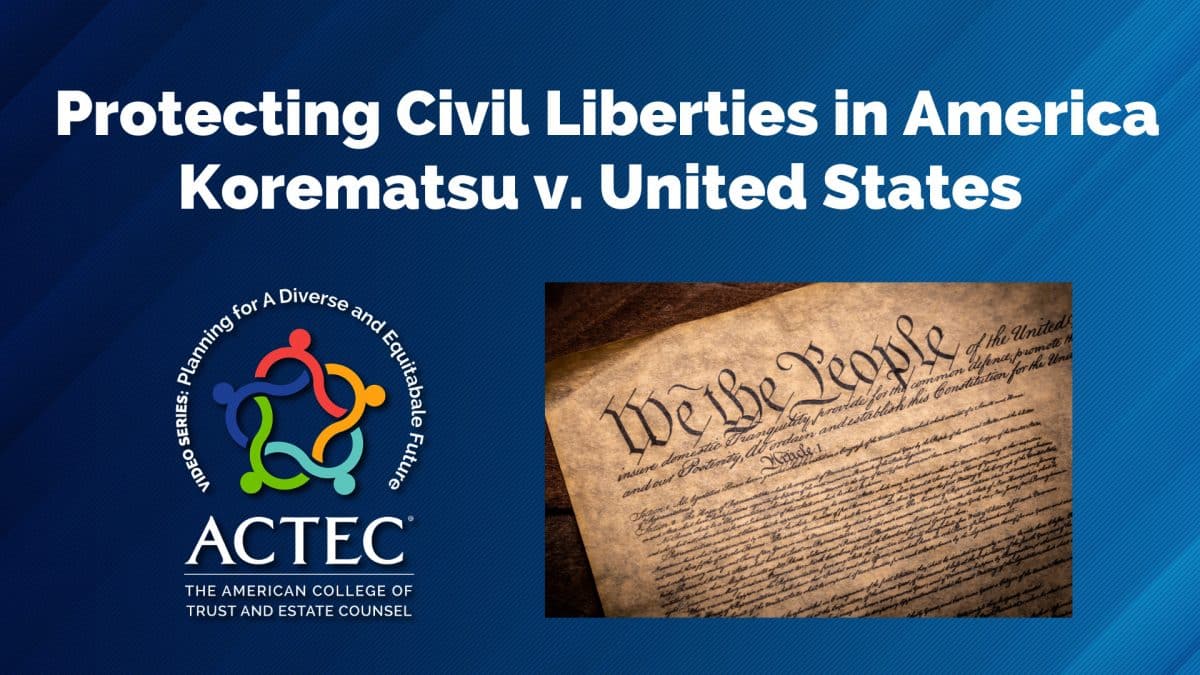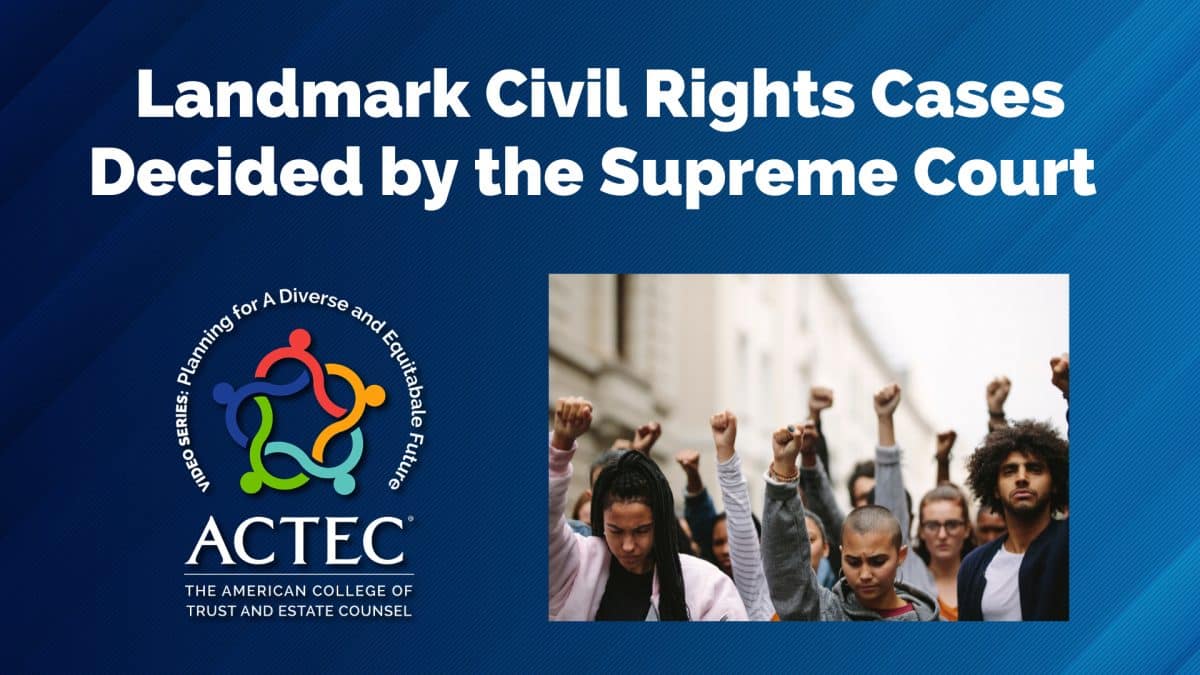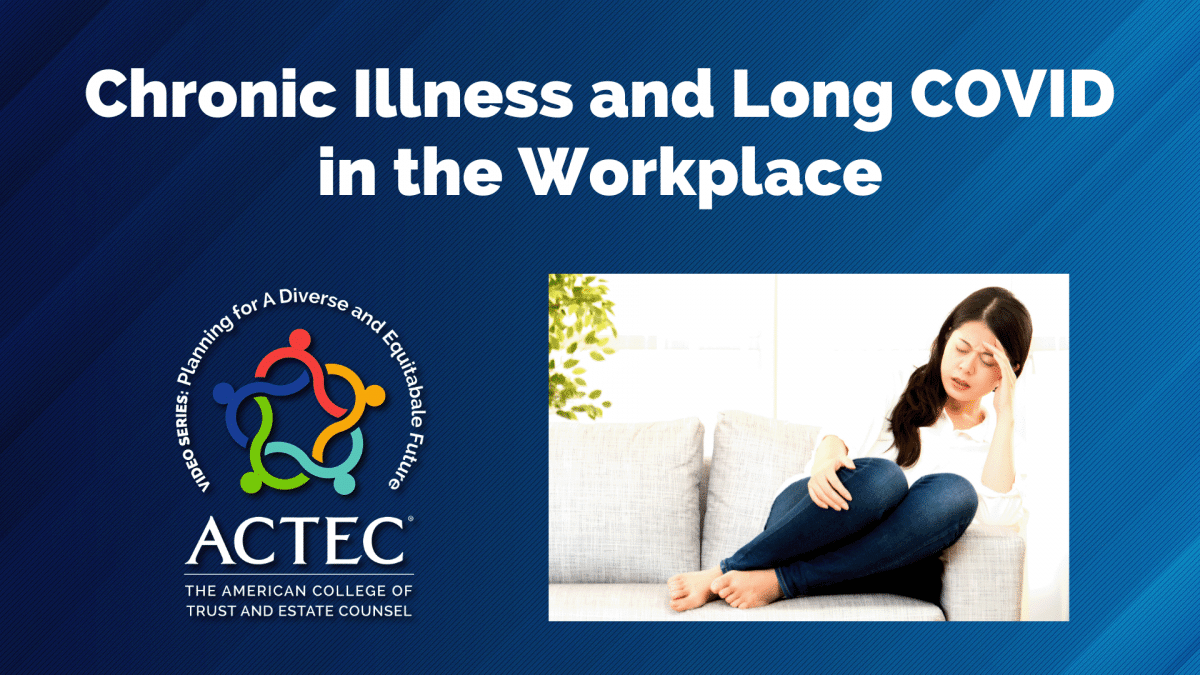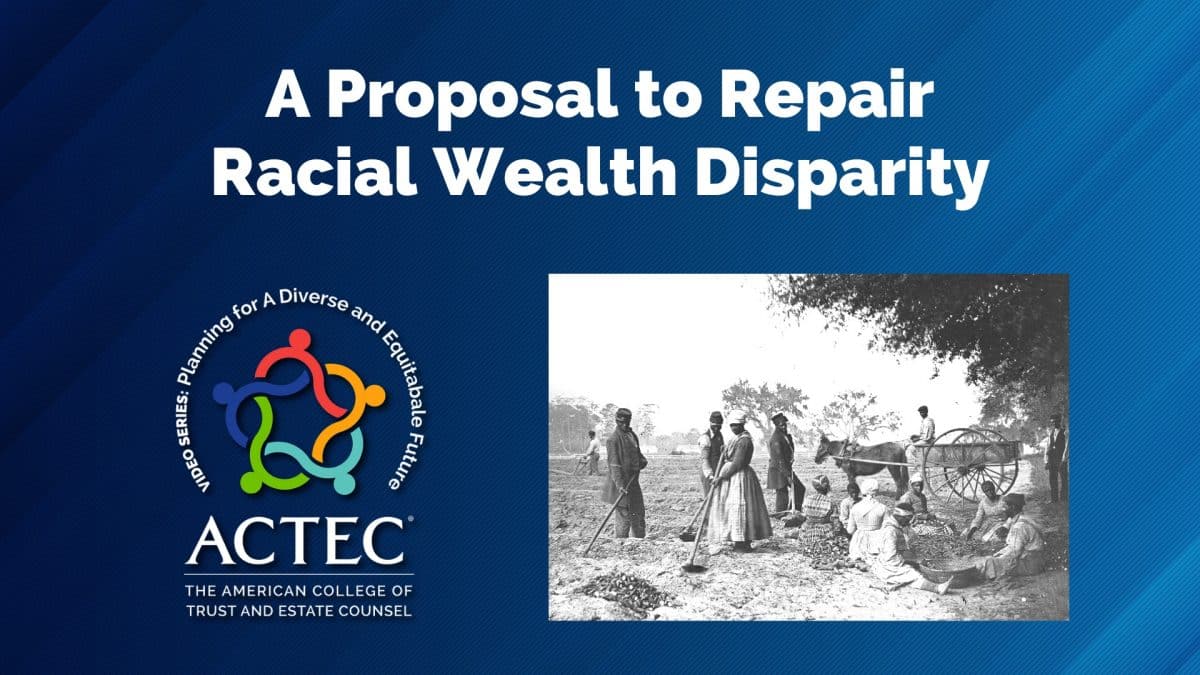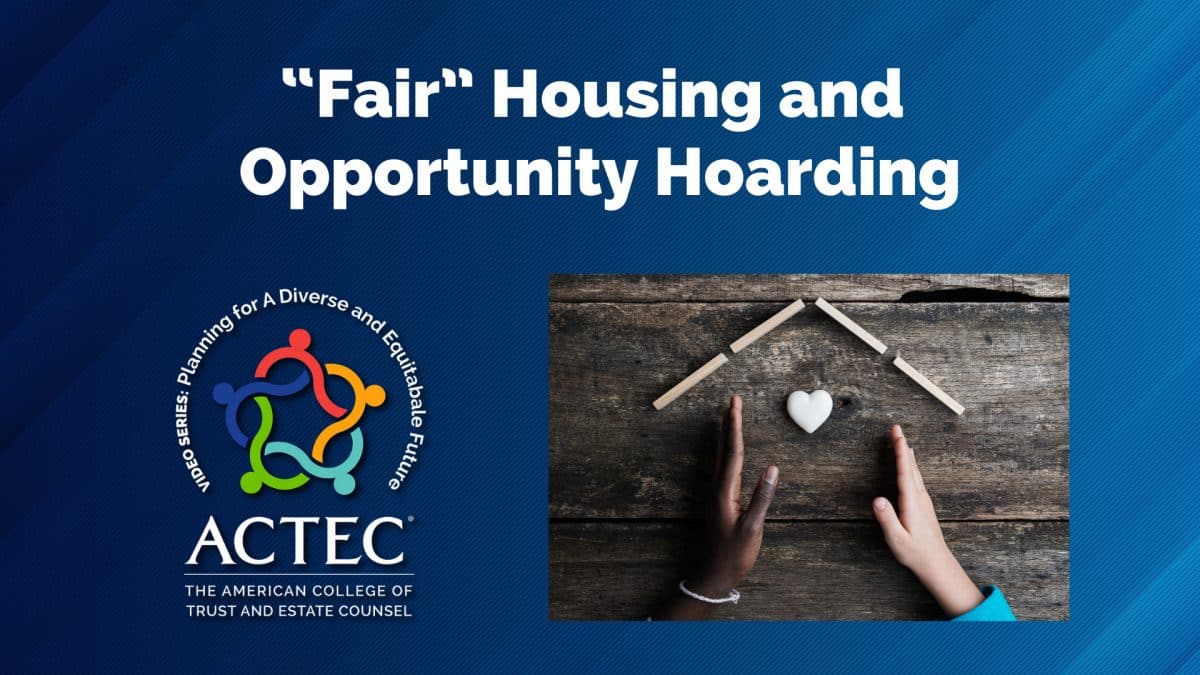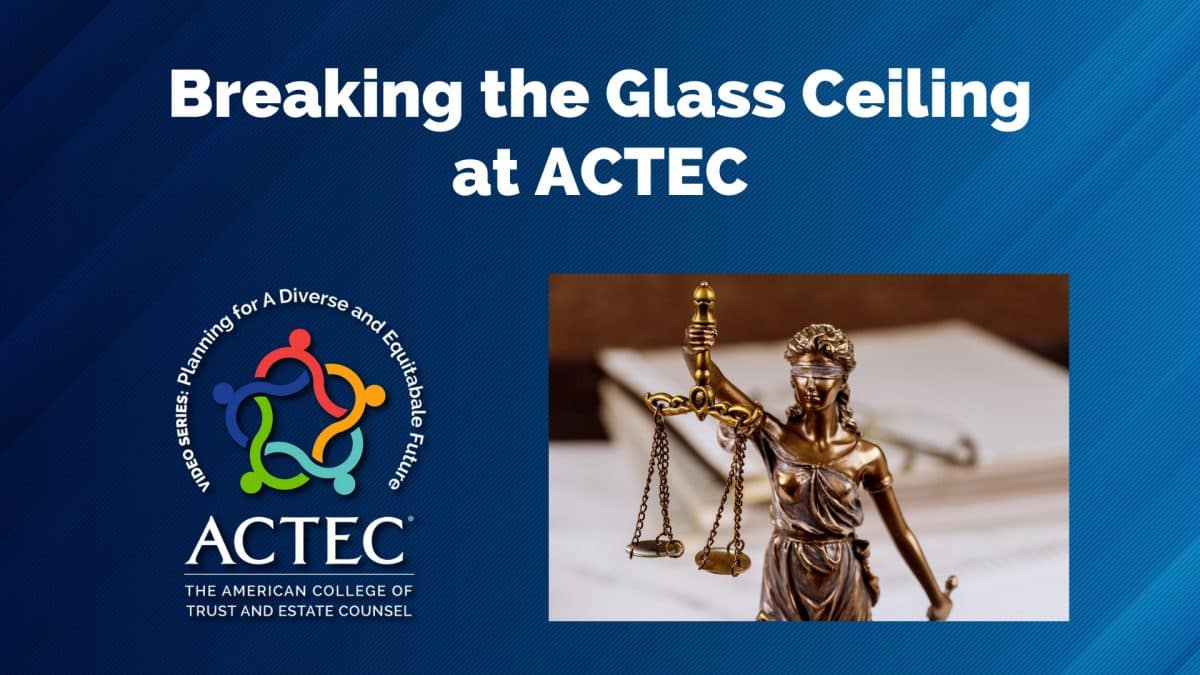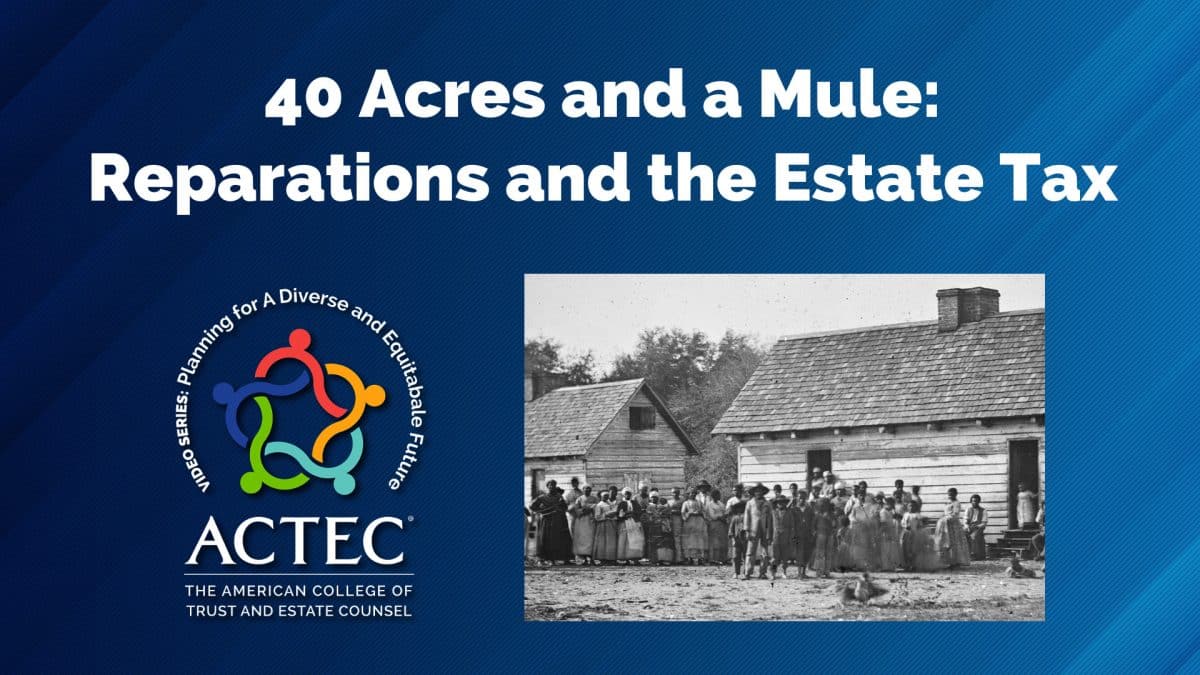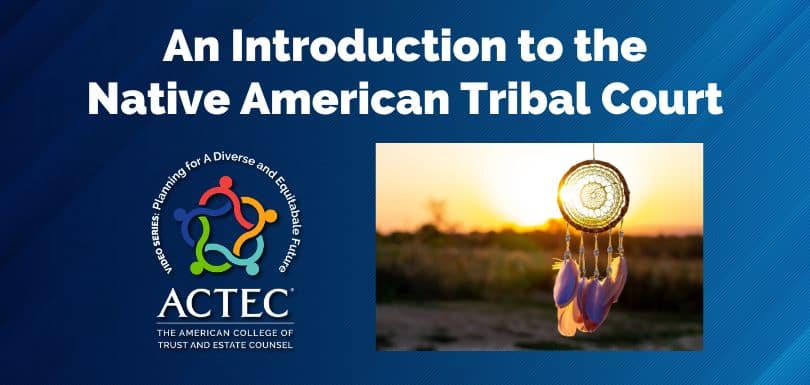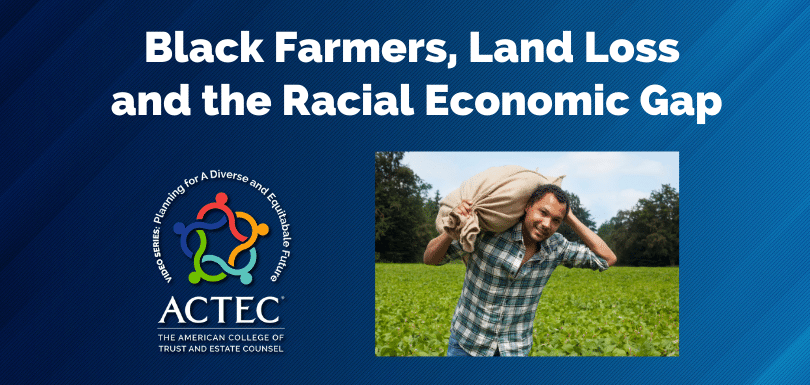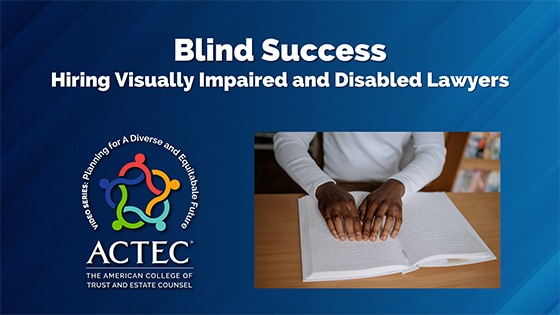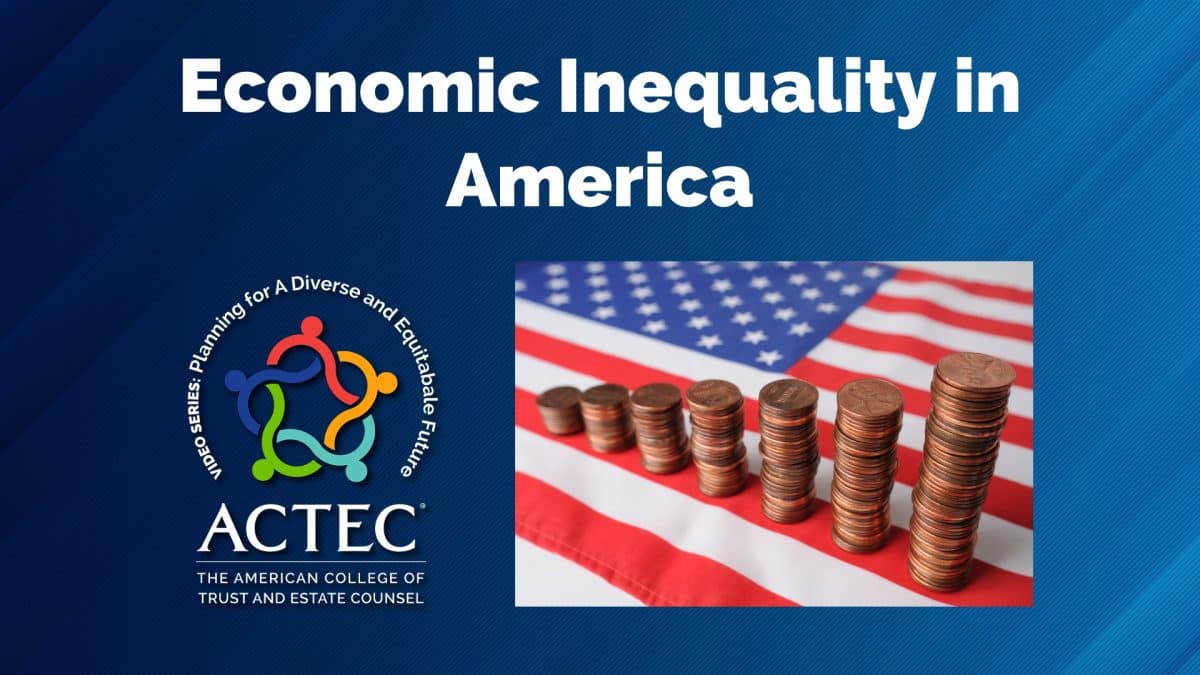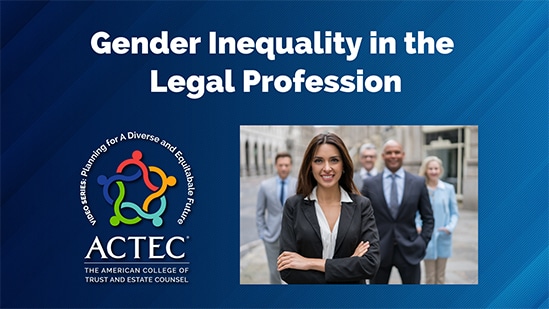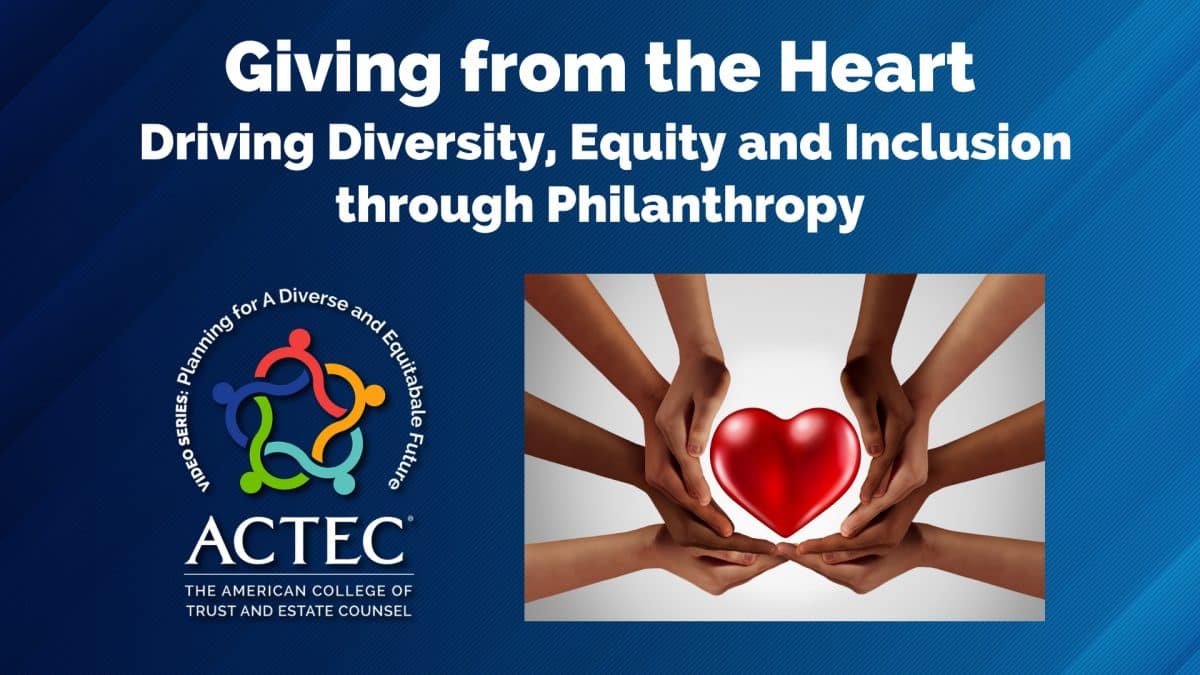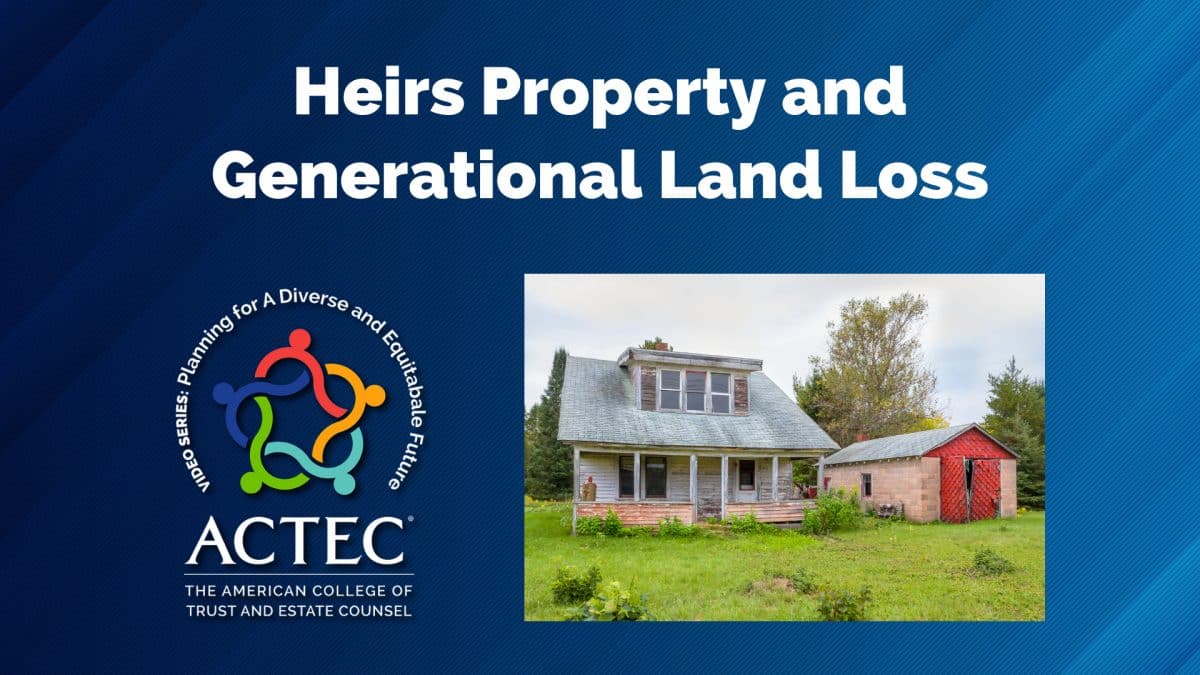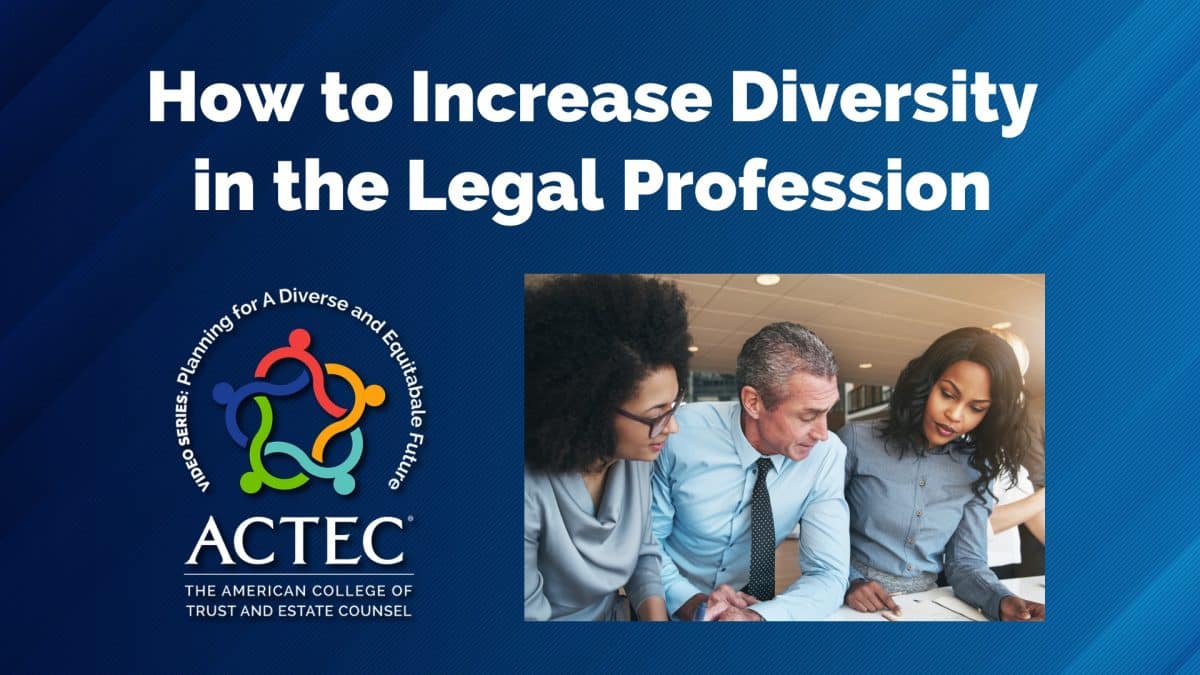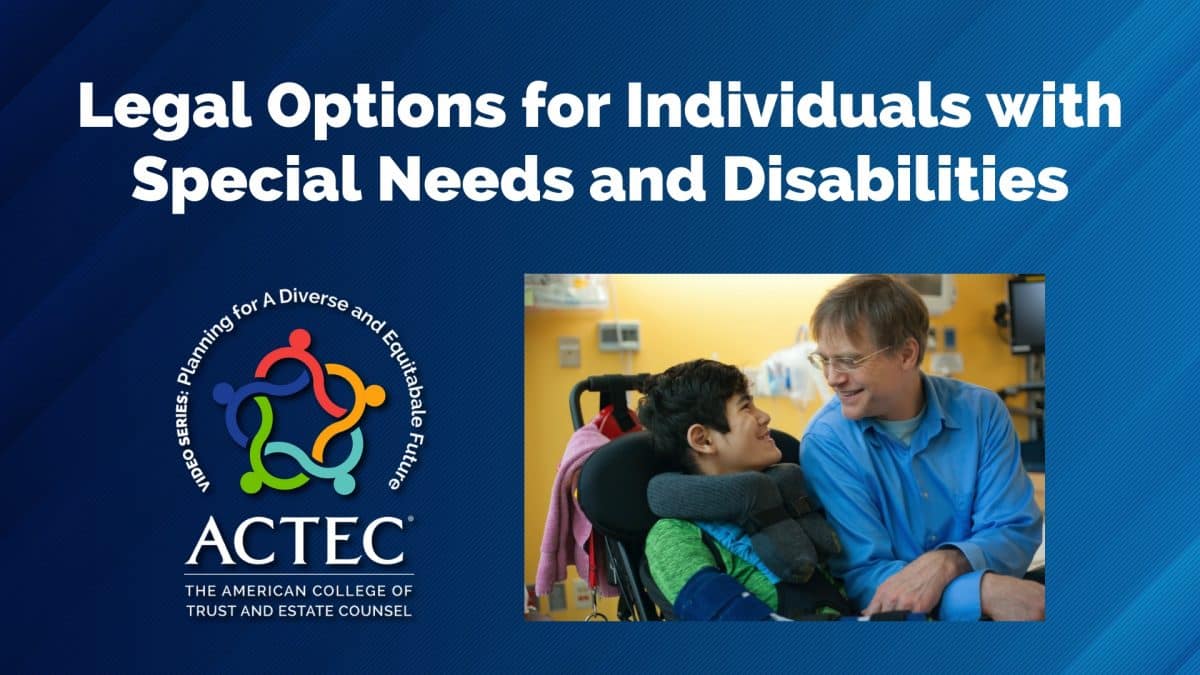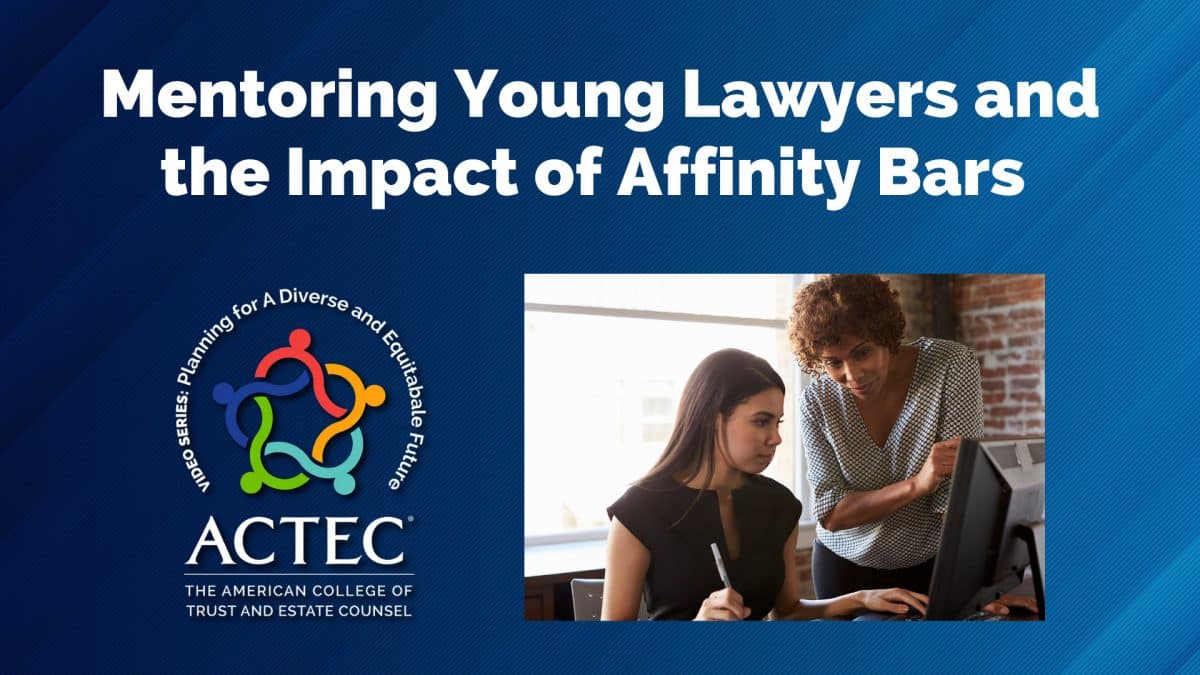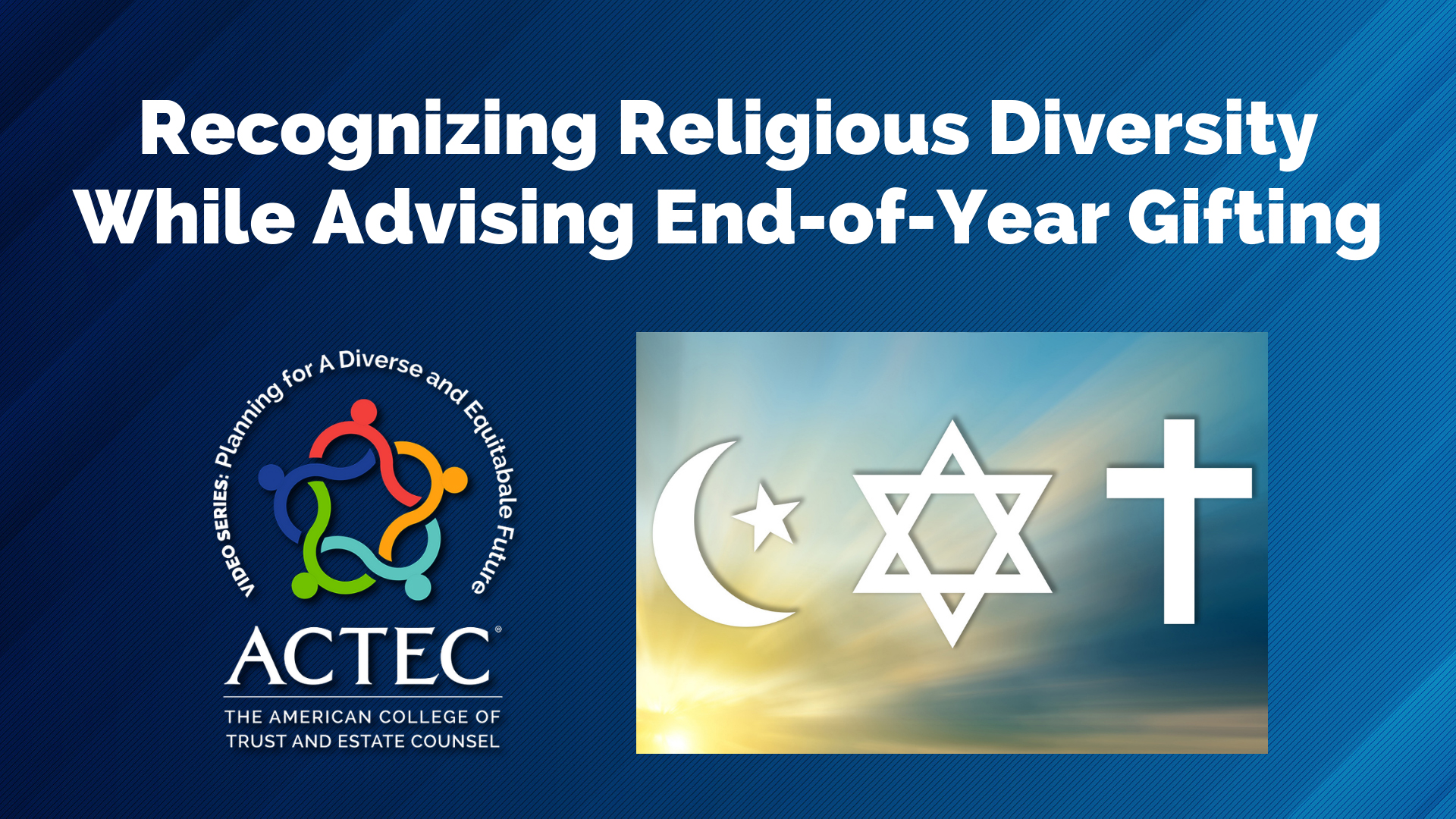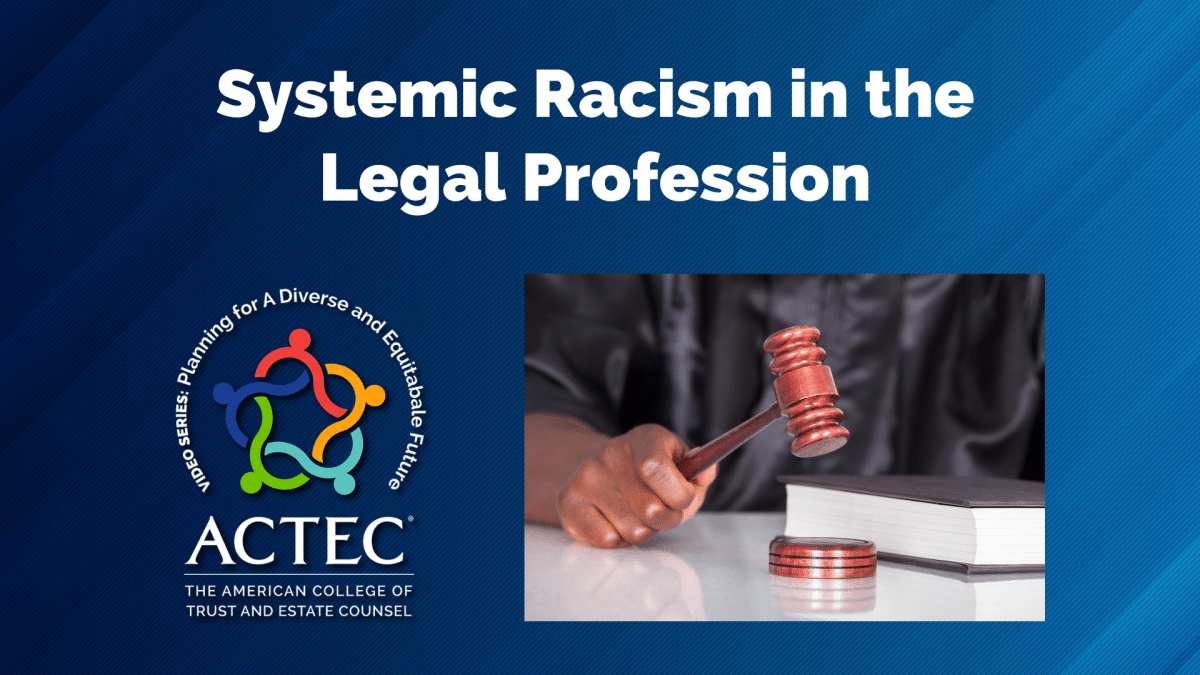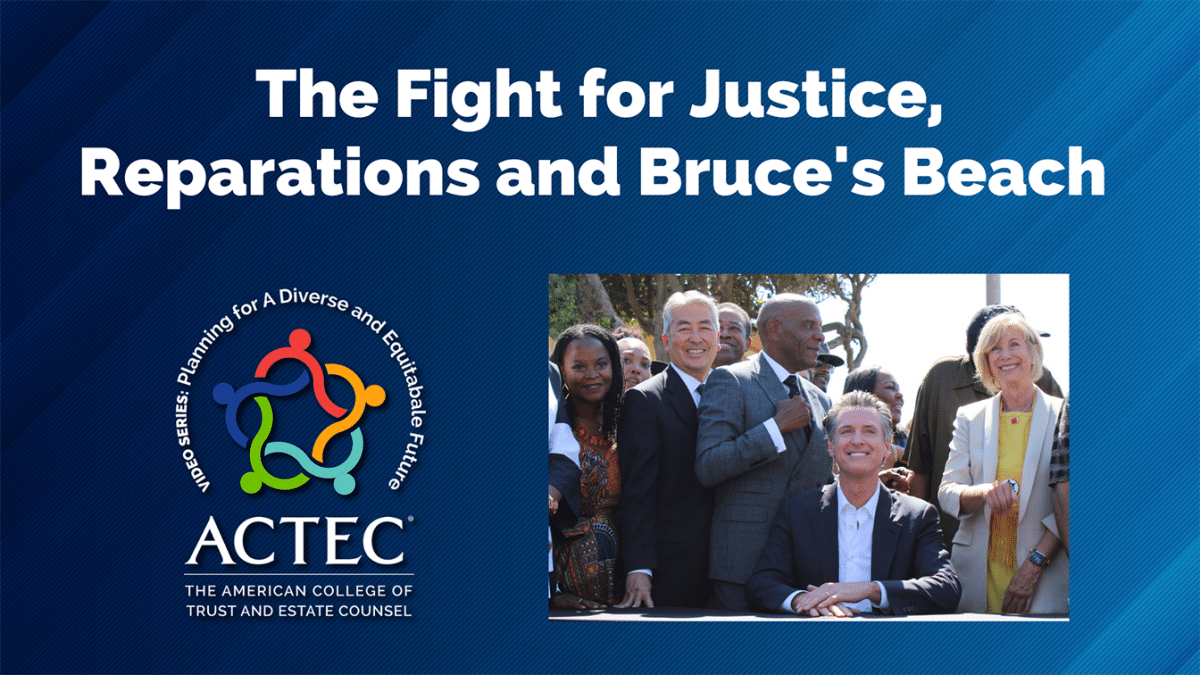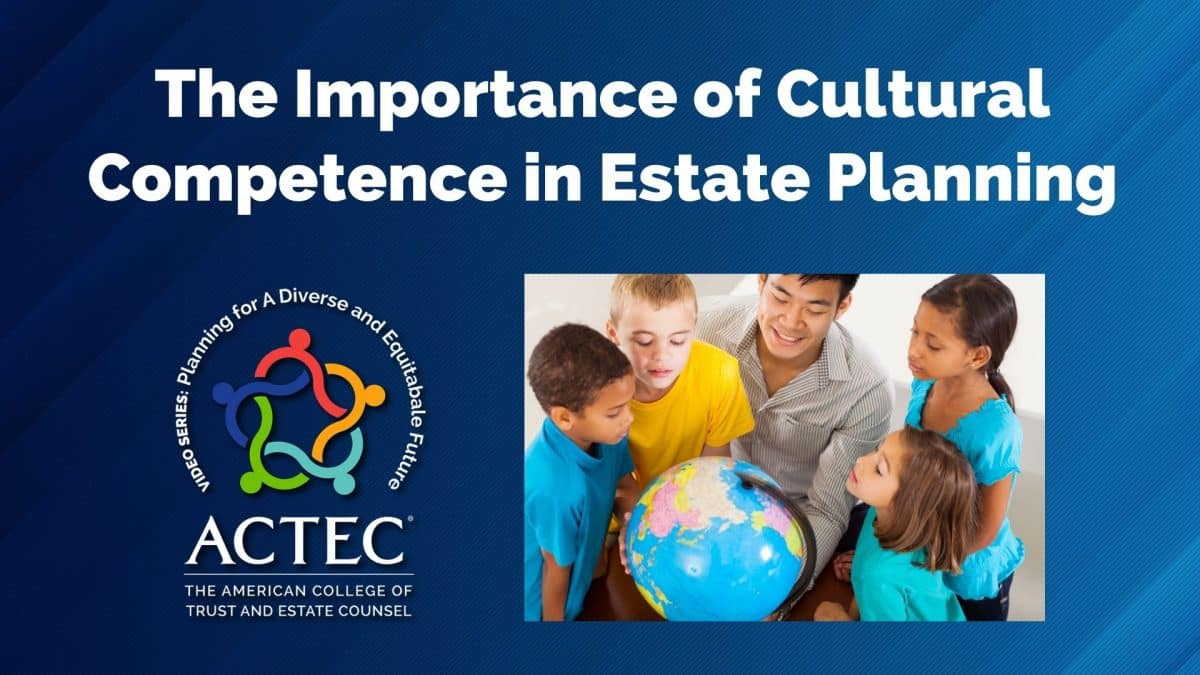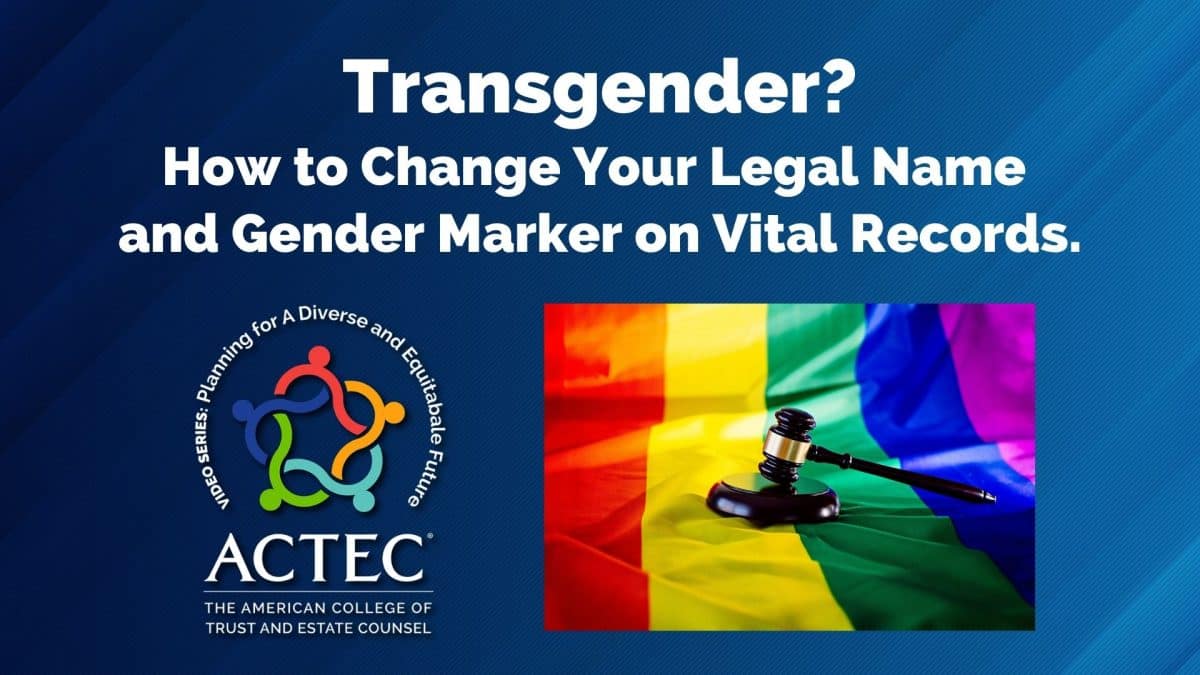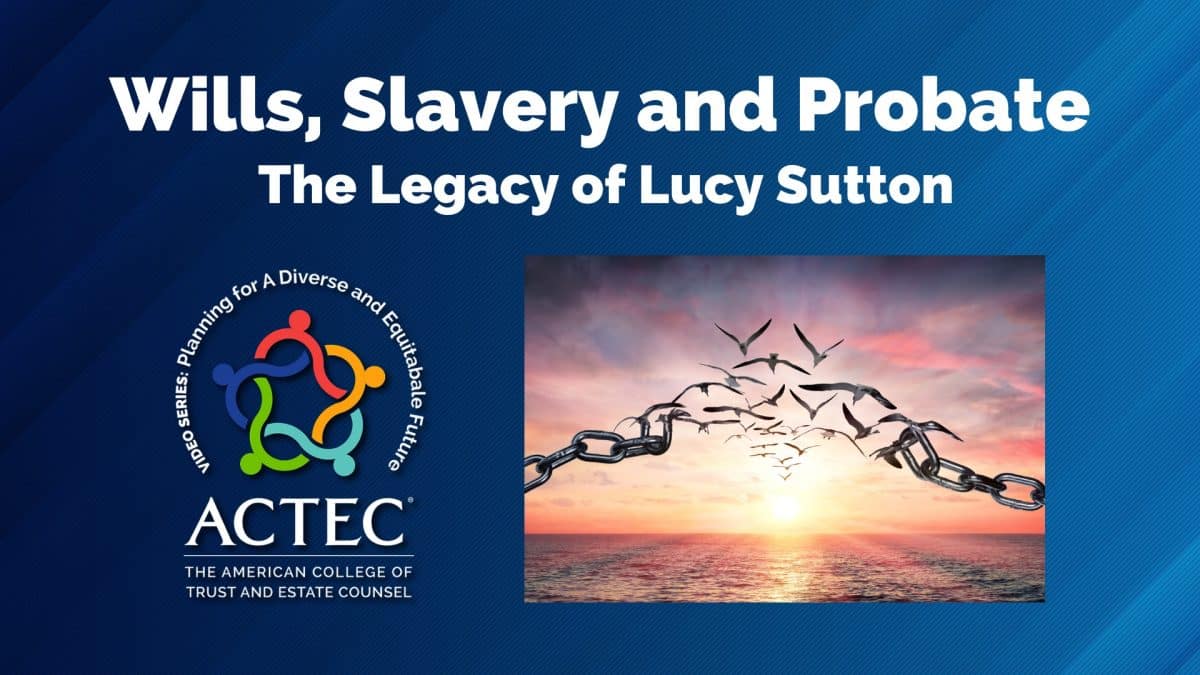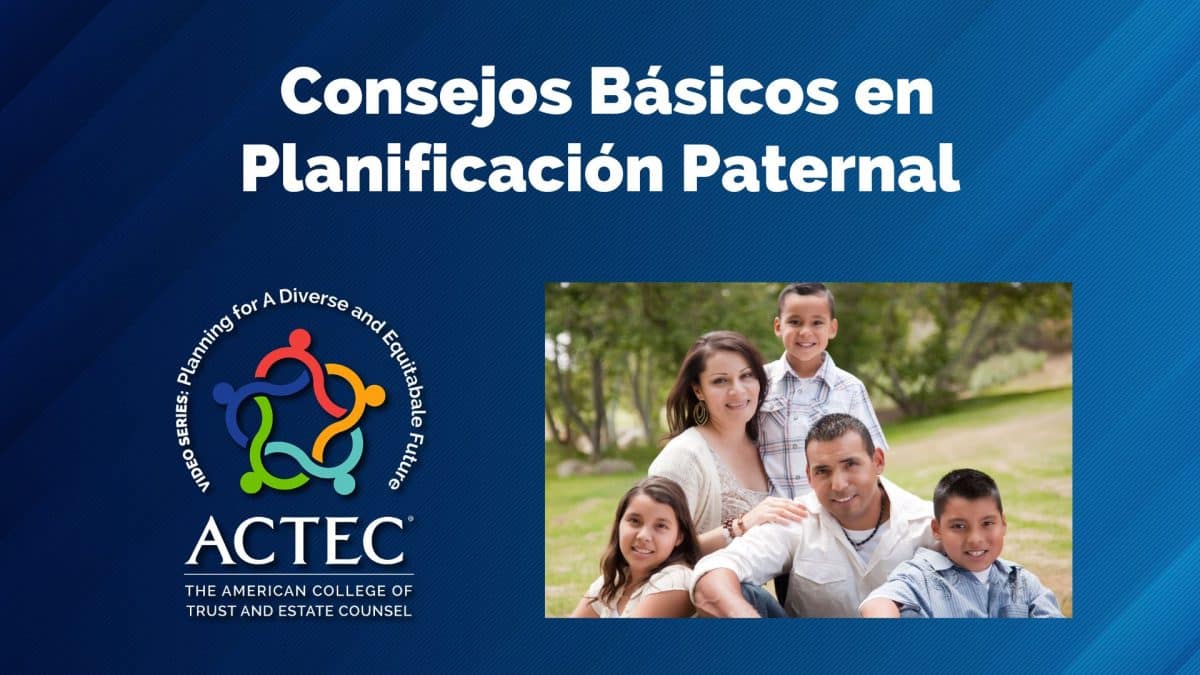ACTEC considers the historical, continuing, and devastating impact of systemic discrimination against racial, ethnic, gender, LGBTQ and other minority and marginalized groups in our society to be a humanitarian rather than a political issue.
This series strives to educate by discussing issues surrounding racism, sexism and discrimination in all its forms and by offering recommendations to combat inequality.

ACTEC Resource Center
ACTEC Fellows share valuable knowledge and opinions as part of the College’s commitment to improving the trust and estate profession through lifelong learning.
SEARCH THE RESOURCE CENTERThe Planning for a Diverse and Equitable Future series was a recipient of the 2022 Communicator Award.
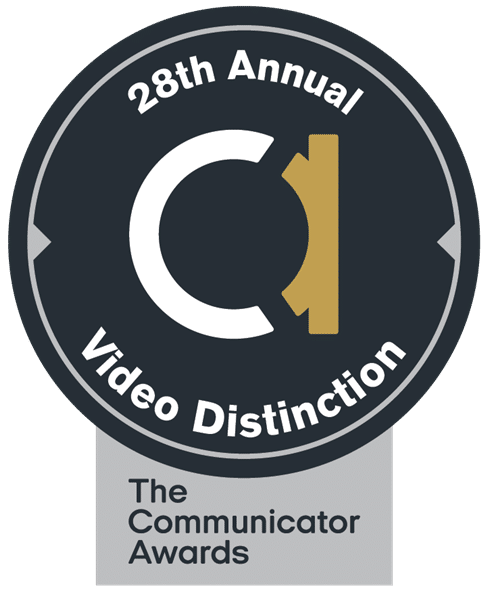
-
Protecting Civil Liberties in America
A discussion of the history of the 1944 Supreme Court case Korematsu v. United States and its relevance to present-day civil liberties.
-
Landmark Civil Rights Cases Decided by the Supreme Court
Author and Professor Christopher Schmidt reviews the history of critical Supreme Court civil rights and equality cases that everyone should know.
-
Chronic Illness and Long COVID in the Workplace
An interview with a Long COVID sufferer and an employment law specialist to better understand the chronic illness and discuss the health and work impacts.
-
A Proposal to Repair Racial Wealth Disparity
Experts in tax law present their research on racial wealth disparity as well as recommendations for funding and distributing reparations to Black Americans.
-
“Fair” Housing and Opportunity Hoarding
In a Fair Housing Month feature video, author Sherryl Cashin discusses how unfair housing has contributed significantly to the wealth gap between black and white Americans.
-
Breaking the Glass Ceiling at ACTEC
In honor of Women’s History Month, ACTEC looks at our history of inclusion and diversity by interviewing the first women to pave the way in the College.
-
40 Acres and a Mule: Reparations and the Estate Tax
An introduction to wealth disparity due to slavery and enacted under Jim Crow, the history of reparations and a possible solution to the wealth gap.
-
An Introduction to Native American Tribal Court
Judge Joseph Wiseman, a tribal court judge, explains the interworking of the court, its jurisdiction, and its importance to Native American law and culture.
-
Black Farmers, Land Loss and the Racial Economic Gap
Insight into the inequity of intergenerational wealth of Black American farmers through discriminatory government programs and practices.
-
Blind Success: Hiring Visually Impaired and Disabled Lawyers
An ACTEC Fellow describes his journey as a blind lawyer: lessons learned, job support, and recommendations for law firms hiring individuals with disabilities.
-
Economic Inequality in America
A discussion of economic inequality of people of color in the US and actions wealth management professionals can take to promote generational wealth.
-
Gender Inequality in the Legal Profession
Explore the persistent challenges of gender inequality in the legal profession and learn about ongoing barriers and efforts to address this crucial issue.
-
Giving from the Heart: Driving Diversity, Equity and Inclusion through Philanthropy
Charitable donation advisors offer suggestions to estate planning professionals for increasing client awareness of diversity, inequity and inclusion causes.
-
Heirs Property and Generational Land Loss
Experts discuss estates that did not clear probate, known as heirs’ property, its impact on people of color, and solutions to correct the issue.
-
How to Increase Diversity in the Legal Profession
Practical recommendations for professionals and law firms on increasing and retaining diverse people through mentoring, sponsorship, and recruiting efforts.
-
Legal Options for Individuals with Special Needs and Disabilities
Overview of options for those with special needs, including alternatives to guardianship, Supported Decision-Making, POA, healthcare proxies, MOLST and more.
-
Mentoring Young Lawyers and the Impact of Affinity Bars
Trust and estate lawyers discuss the importance of mentoring young lawyers from diverse backgrounds and encouraging their participation in affinity bars.
-
Recognizing Religious Diversity While Advising End-of-Year Gifting
A multi-faceted discussion between legal professionals of the impact of faith on end-of-year giving regarding Christianity, Judaism and Islam.
-
Systemic Racism in the Legal Profession
A discussion of structural biases and practices in the legal profession that disproportionately disadvantage minority lawyers with recommendations to address.
-
The Fight for Justice, Reparations and Bruce’s Beach
Understand efforts by a pro bono attorney and land-rights activist to return a racially motivated eminent domain property, Bruce’s Beach, to the family’s heirs.
-
The Importance of Cultural Competence in Estate Planning
Estate lawyers discuss how cultural competence can help trust and estate attorneys be more effective with clients in their increasingly diverse law practices.
-
Transgender? How to Change Your Legal Name and Gender Marker on Vital Records.
Attorneys explain to transgender people and their counsel how to change their name and gender on vital records and critical legal documents.
-
Wills, Slavery and Probate: The Legacy of Lucy Sutton
A powerful story of a family’s journey from slavery to freedom thanks to a last will and testament that honors African Americans and Black History Month.
-
Consejos Básicos en Planificación Paternal
Información para latinos que explica la necesidad de tener documentos esenciales de planificación patrimonial para proteger, preservar y distribuir activos en caso de muerte o emergencia.

